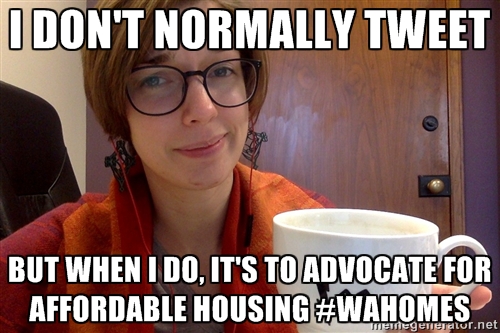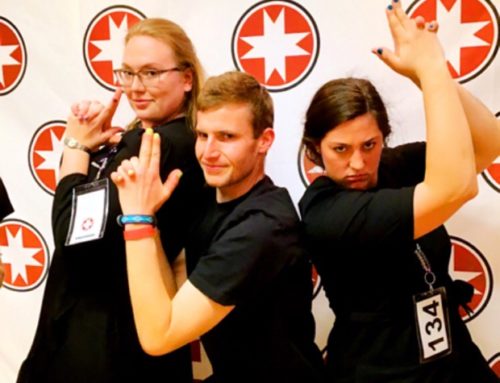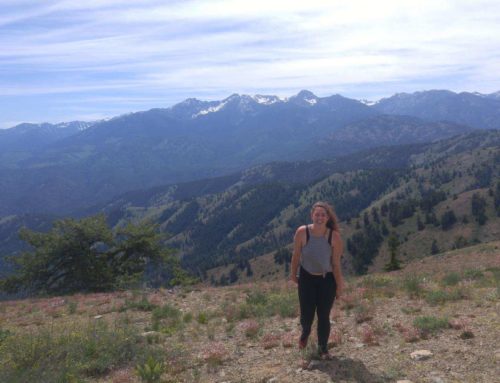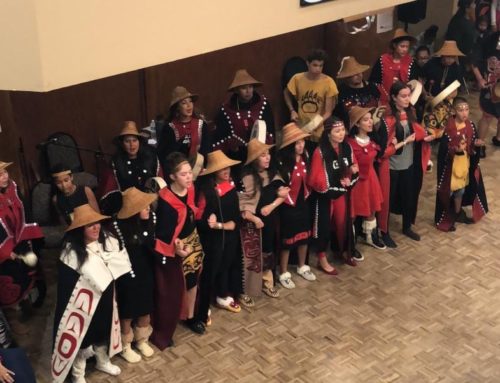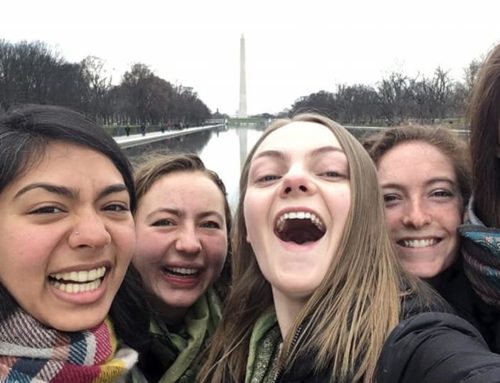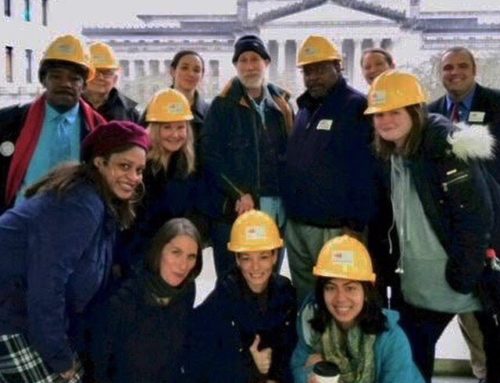My thoughts: “Whoa. What did I get myself into?!”
Turns out, I got myself into a way cooler job than I ever imagined myself getting right out of college. I am the Voter Engagement Organizer for the Washington Housing Alliance Action Fund, and I can’t think of a QuEST placement that would be a better fit for me. The Housing Alliance takes a big-picture, structural approach to affordable housing and homelessness issues by engaging in legislative advocacy at the state level. Before I started, I didn’t have much experience with legislative advocacy, but my passion for housing issues and social justice in general helped me ride the learning curve during my first six months.
During my first couple of months, I organized phone banks and coordinated volunteers for door knocking shifts in support of Representative Carol Gregory in the 30th legislative district. I found that “organizing,” among many other things, involved: building relationships, knowing how and when to make effective asks, transforming phonebanking into funbanking (look at #funbank on Twitter), spending lots of time on the phone, and making friends with local business owners to get delicious Korean food donated for volunteers. Most importantly, it required a positive attitude. For example, when Election Day turned out to be a bummer, we still celebrated the 95 volunteer shifts that we completed in the months prior.
After the elections ended, I started working on the Resident Action Project, which is the main focus of my work right now. The goals of the Resident Action Project are 1) to build a base of resident power and 2) to advance legislation related to affordable housing and homelessness issues by organizing the experts on the issue — residents of affordable housing. The Resident Action Project is still in formation. As a staff, we don’t want to be too prescriptive about what the program is going to look like; we want residents to have a hand in building and leading our efforts. This work is challenging because we’re constantly grappling with difficult questions about race, class, and power as we try to make the program as inclusive and approachable as possible. What’s more, we’re thinking through how to bridge the cultural gap between Olympia and residents of affordable housing. These are not small tasks, but I feel good about the work that we’re doing and the questions that we’re asking.
Overall, I’ve learned a ton in the last six months. As it turns out, learning the acronyms, bill numbers, and organizations that I heard about during that first Public Policy Committee meeting was the easy part. I’m excited to see what the next six months bring!
